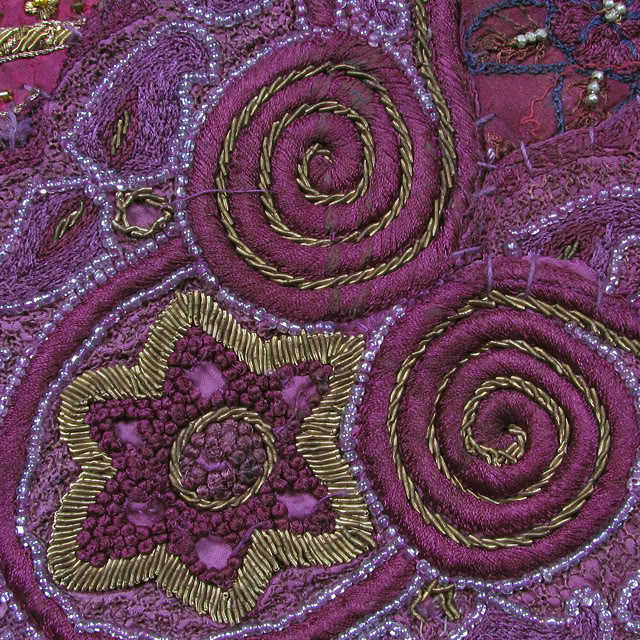===
0084,
2
===

=== |
 |
nah ve zanjiir ke ;Gul hai;N nah ve jarge ;Gazaalo;N ke
mire diivaanapan tak hii rahaa ma((muur viiraanaa
1) neither are there those clamors of chains, nor are there those herds of gazelles
2) only/emphatically to the extent of my madness, the wilderness remained inhabited/settled/flourishing
;Gul : 'Noise, din, clamour, confusion of voices, outcry, tumult'. (Platts p.771)
jargah : 'A circle, ring (of men or beasts); a flock, herd, or drove (of animals)'. (Platts p.379)
viiraanah : 'A desolate place; a place full of ruins; a solitude; —a waste; forest-land'. (Platts p.1209)
ma((muur : 'Inhabited; peopled; well stocked with people, populous; colonized, cultivated, well-cultivated; in a flourishing state, flourishing; affluent, prosperous, happy; delightful'. (Platts p.1050)
FWP:
SETS == A,B; MUSHAIRAH
MOTIFS == DESERT; MADNESS
NAMES
TERMSOn the spelling of the rhyme-word, see SRF's comments in {84,1}.
We're left to decide for ourselves exactly what kind of contrast is being made between the situation described in the first line, and the account provided in the second line. One obvious reading is temporal: the first line describes what used to exist, and the second line explains that since the speaker's madness has left him, those phenomena that were created by his madness don't exist any more. This reading emphasizes the contrast between the present tense of the first line (these things don't exist now) with the past tense of the second line (they only 'remained' while madness maintained them). This is SRF's preferred reading.
Another reading is an analytical one: the speaker reasons with himself, trying to persuade himself that he's seeing things. Thus the apparent clanking of chains, and the apparent 'herds' (a word that also means 'circles', and thus nicely echoes the round links of fetters and chains) of gazelles, aren't really there at all, they're just delusions. The speaker realizes that their manifestation is coextensive with his madness-- only to the extent that he was mad, did he perceive these things as 'existing'.
But the most enjoyable aspect of the verse is its 'mushairah-verse' structure. For not only the first line, but also most of the second line, remain uninterpretable until we hear, at the last possible moment, the punch-word ma((muur . And then not only the sense of the verse, but also the brilliant irony of ma((muur , hit us at once with a most enjoyable force. For ma((muur has any number of senses related to well-populatedness, flourishingness, happiness, etc., and absolutely no negative senses (see the definition above). In short, it's the least viiraanah -like word in the world (if we compare the two definitions).
Thus we realize that the speaker's idea of well-populatedness, flourishingness, happiness, extends no further than a wilderness or wasteland inhabited (only) by clanking chains and wandering herds of deer. If this is what he thinks of as flourishingness, how utterly wretched and/or crazy his inner world must be! Apparently not only his life, but even his imagination, can't rise to any greater or realer vision of happiness.
We can't tell whether the viiraanah is literal (an actual desolate wasteland) or metaphorical (the speaker's mind); but in a verse like this, it hardly matters. The frisson is certainly real enough.